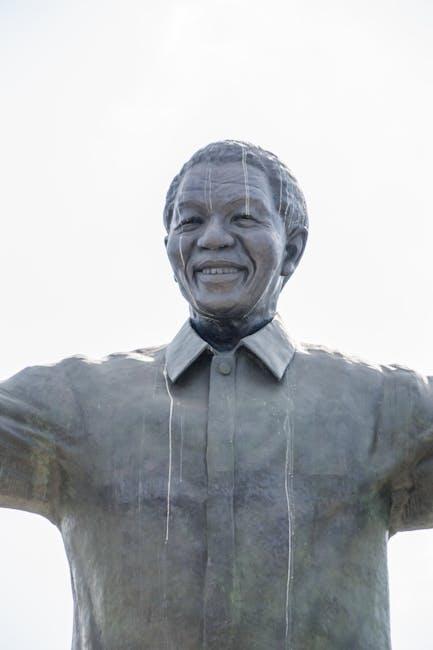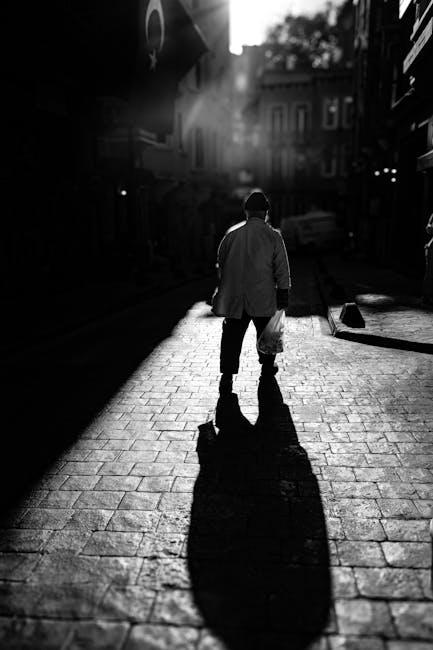In an age where access to information is at our fingertips, historical documentaries have emerged as a powerful medium for exploring the complexities of our past. These visual narratives offer more than just a glimpse into bygone eras; they provide a nuanced understanding of historical events, figures, and cultures. By combining rigorous research with compelling storytelling, documentaries have the unique ability to educate and engage viewers, making history accessible to a broad audience. This article aims to analyze some of the best historical documentaries available today, evaluating their effectiveness in conveying historical knowledge and their impact on contemporary perceptions of the past. Through this exploration, we seek to identify the documentaries that not only inform but also inspire a deeper appreciation for the intricate tapestry of human history.
Exploring Key Events Through Acclaimed Documentaries
Documentaries offer a captivating lens through which to explore pivotal moments in history, providing both educational value and engaging storytelling. Ken Burns’ “The Civil War” stands out as a quintessential piece, weaving together photographs, firsthand accounts, and expert narration to bring the American Civil War to life. Another exemplary work, “13th” by Ava DuVernay, critically examines the intersection of race, justice, and mass incarceration in the United States, tracing its roots from the abolition of slavery to the present day.
These documentaries are not just passive viewing experiences but invite viewers to engage deeply with historical narratives. Consider “The Fog of War”, where former U.S. Secretary of Defense Robert S. McNamara offers a candid reflection on the complexities of modern warfare, or “Night and Fog”, which provides a haunting exploration of the Holocaust through archival footage and poignant commentary. The following documentaries are particularly insightful:
- “The Act of Killing” – A unique perspective on the Indonesian mass killings of 1965-66.
- “The World at War” – A comprehensive series on World War II.
- “Shoah” – A profound examination of the Holocaust.

Uncovering Hidden Narratives in Historical Documentaries
Historical documentaries often serve as windows into the past, but beneath the surface lies a rich tapestry of hidden narratives waiting to be uncovered. These narratives offer nuanced insights that go beyond mainstream historical accounts, revealing the intricate layers of human experience. By delving into these hidden stories, viewers can gain a deeper understanding of the complexities that shaped historical events.
Some documentaries excel at unearthing these lesser-known tales, shedding light on overlooked perspectives and marginalized voices. Consider exploring films that focus on:
- Social Movements: Documentaries that explore grassroots movements provide a fresh perspective on the power dynamics and social changes that have often been overshadowed by more dominant narratives.
- Personal Stories: By highlighting individual experiences, these films add a personal dimension to historical events, illustrating how larger societal changes impact everyday lives.
- Cultural Heritage: Documentaries that delve into the cultural aspects of history can reveal how traditions and cultural identities have persisted or transformed over time.
In essence, the best historical documentaries are those that encourage viewers to question and explore the multifaceted stories that contribute to our collective past, challenging us to see history not just as a series of events, but as a complex web of human experiences.

In-Depth Analysis of Influential Historical Figures
Delving into the lives of influential historical figures through documentaries offers a fascinating perspective on their impact and legacy. These documentaries provide rich insights into the complex personalities and pivotal decisions that shaped our world. Historical documentaries not only narrate events but also explore the nuances of leadership, ambition, and the socio-political contexts that influenced these figures. Here are some exceptional documentaries that stand out for their comprehensive analysis and engaging storytelling:
- “The Fog of War: Eleven Lessons from the Life of Robert S. McNamara” – This documentary combines archival footage and in-depth interviews to explore the decisions of the former U.S. Secretary of Defense during critical moments in history.
- “Einstein’s Big Idea” – A captivating exploration of Albert Einstein’s revolutionary theories and their profound impact on modern science and technology.
- “Queen Elizabeth I: Killer Queen” – An intriguing examination of the political strategies and personal challenges faced by one of England’s most iconic monarchs.
- “Malcolm X: Make It Plain” – Through rare footage and interviews, this documentary provides a thorough look at the life and influence of the African American leader.
These documentaries offer more than just a retelling of historical events; they delve into the intricate dynamics that these figures navigated, providing viewers with a deeper understanding of their enduring influence on history.

Top Recommendations for Immersive Historical Learning
When diving into the past, historical documentaries offer an unparalleled window into different eras, cultures, and pivotal events. They provide not only a visual feast but also a profound narrative that can transform our understanding of history. Here are some top recommendations that combine scholarly insight with captivating storytelling:
- “The Civil War” by Ken Burns: This documentary series is a masterclass in weaving together personal stories, expert interviews, and stunning visuals to bring the American Civil War to life.
- “World War II in Colour”: Utilizing restored and colorized footage, this series offers a vivid exploration of the global conflict that reshaped the modern world, making historical events feel immediate and tangible.
- “13th” by Ava DuVernay: Although more contemporary, this documentary provides a critical analysis of the intersection of race, justice, and mass incarceration in the United States, offering a deeper understanding of historical and systemic issues.
- “The Story of India” by Michael Wood: This series takes viewers on an epic journey through the rich tapestry of Indian history, exploring its diverse cultures, innovations, and enduring legacy.
- “The Vietnam War” by Ken Burns and Lynn Novick: An immersive look into one of the most controversial and consequential conflicts of the 20th century, this series blends powerful personal narratives with historical analysis.
These documentaries are not just about learning facts; they encourage viewers to engage with history in a way that is both informative and thought-provoking, offering insights that are crucial for understanding the present.
In Summary
historical documentaries serve as invaluable resources for understanding the complexities of our past. They offer diverse perspectives, detailed analyses, and engaging narratives that bring history to life in a way that textbooks alone often cannot. By exploring a range of topics, from ancient civilizations to modern conflicts, these films provide viewers with the opportunity to gain a deeper appreciation for the events and figures that have shaped our world. As we continue to seek knowledge and context about our shared history, these documentaries remain essential tools for both education and reflection. Whether you are a history enthusiast or a casual learner, the documentaries discussed in this article offer a compelling starting point for your journey into the past.







































